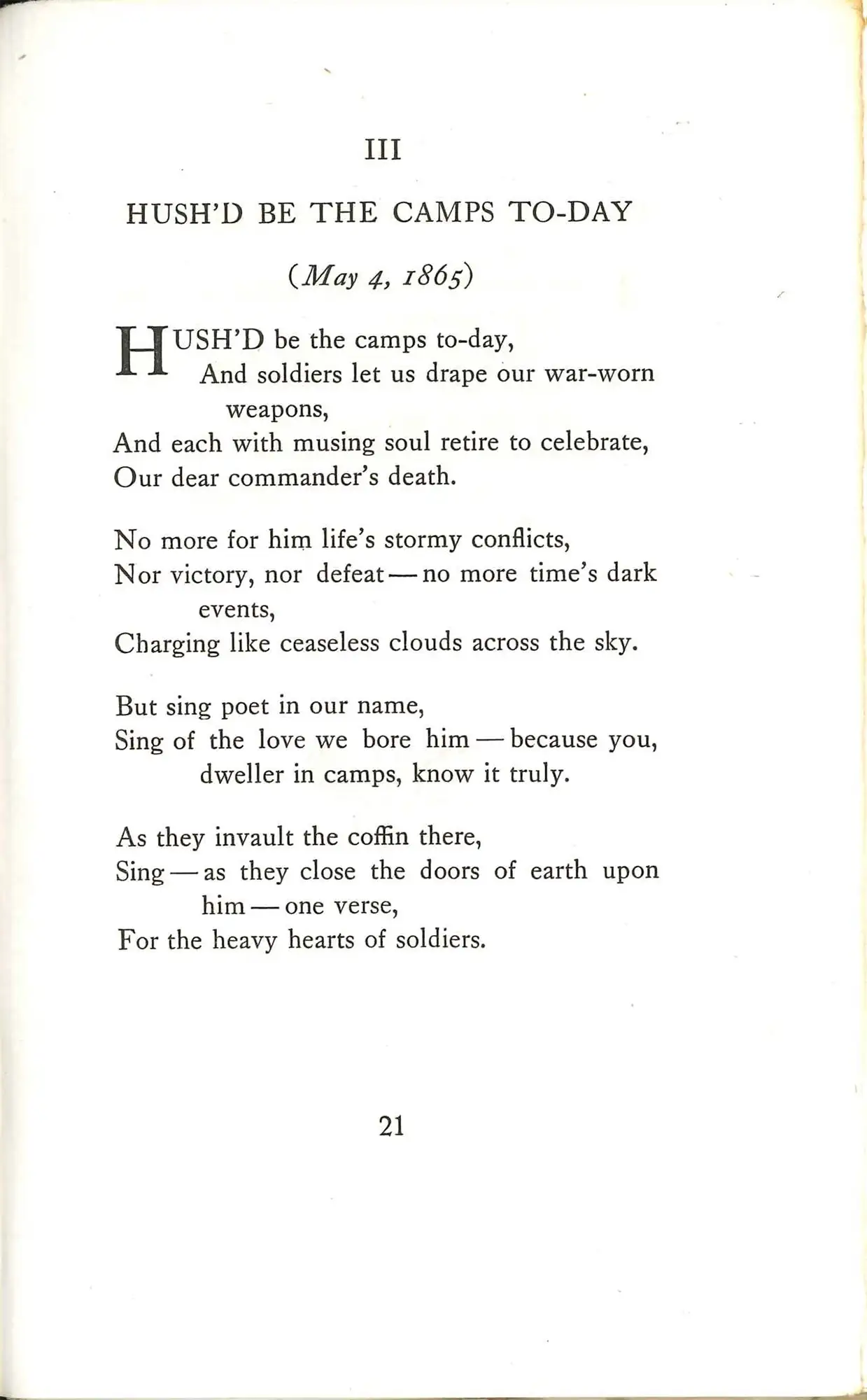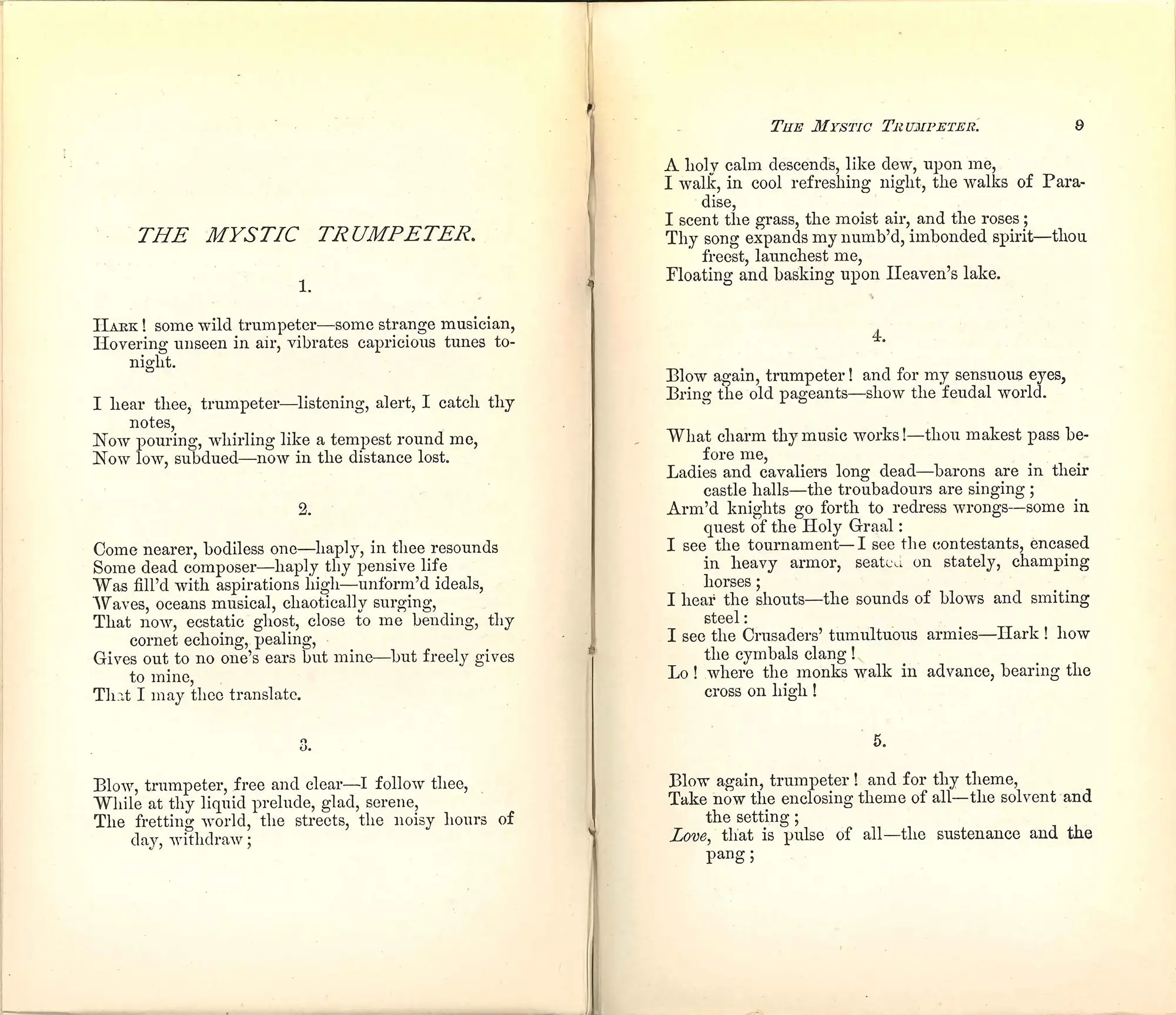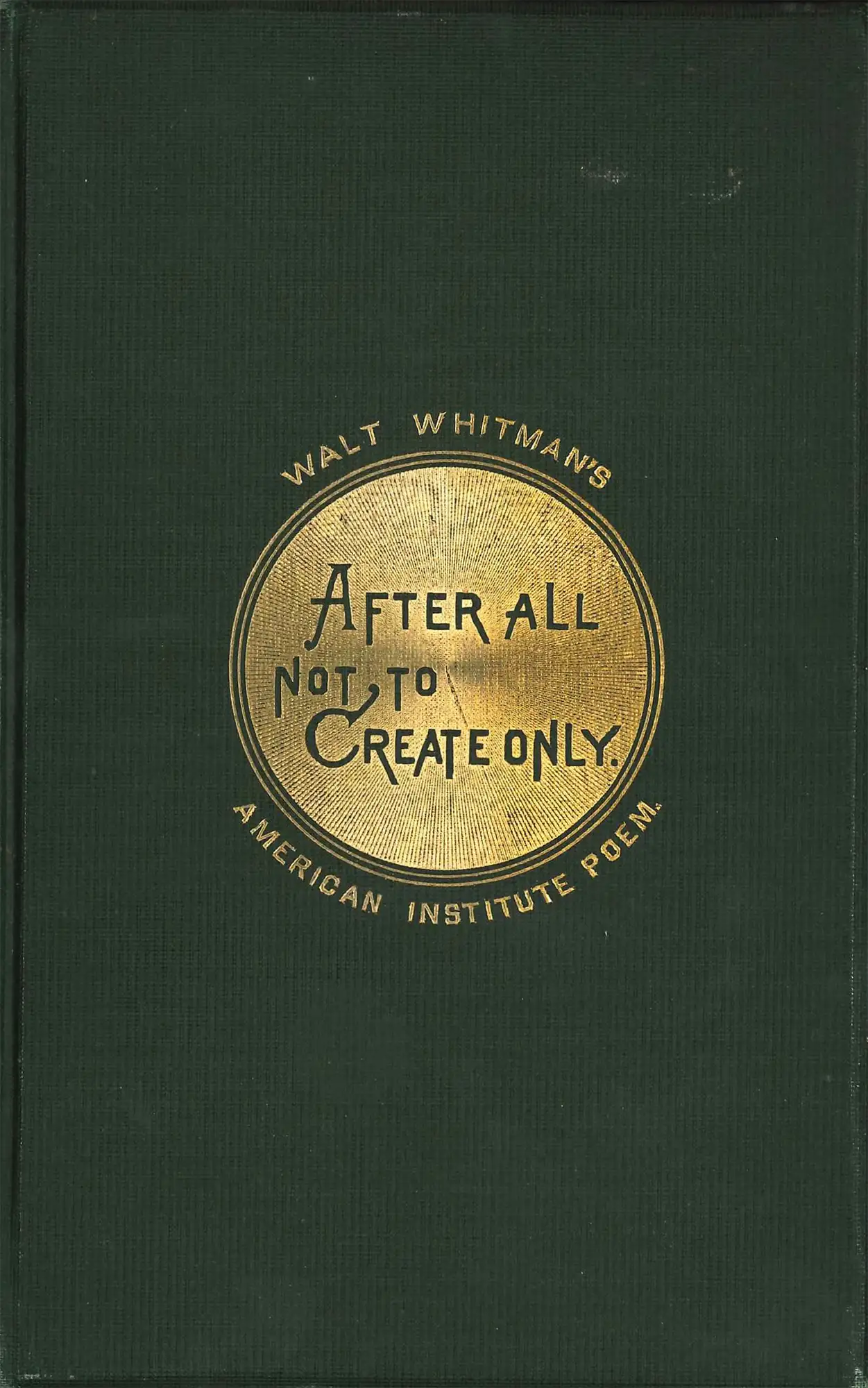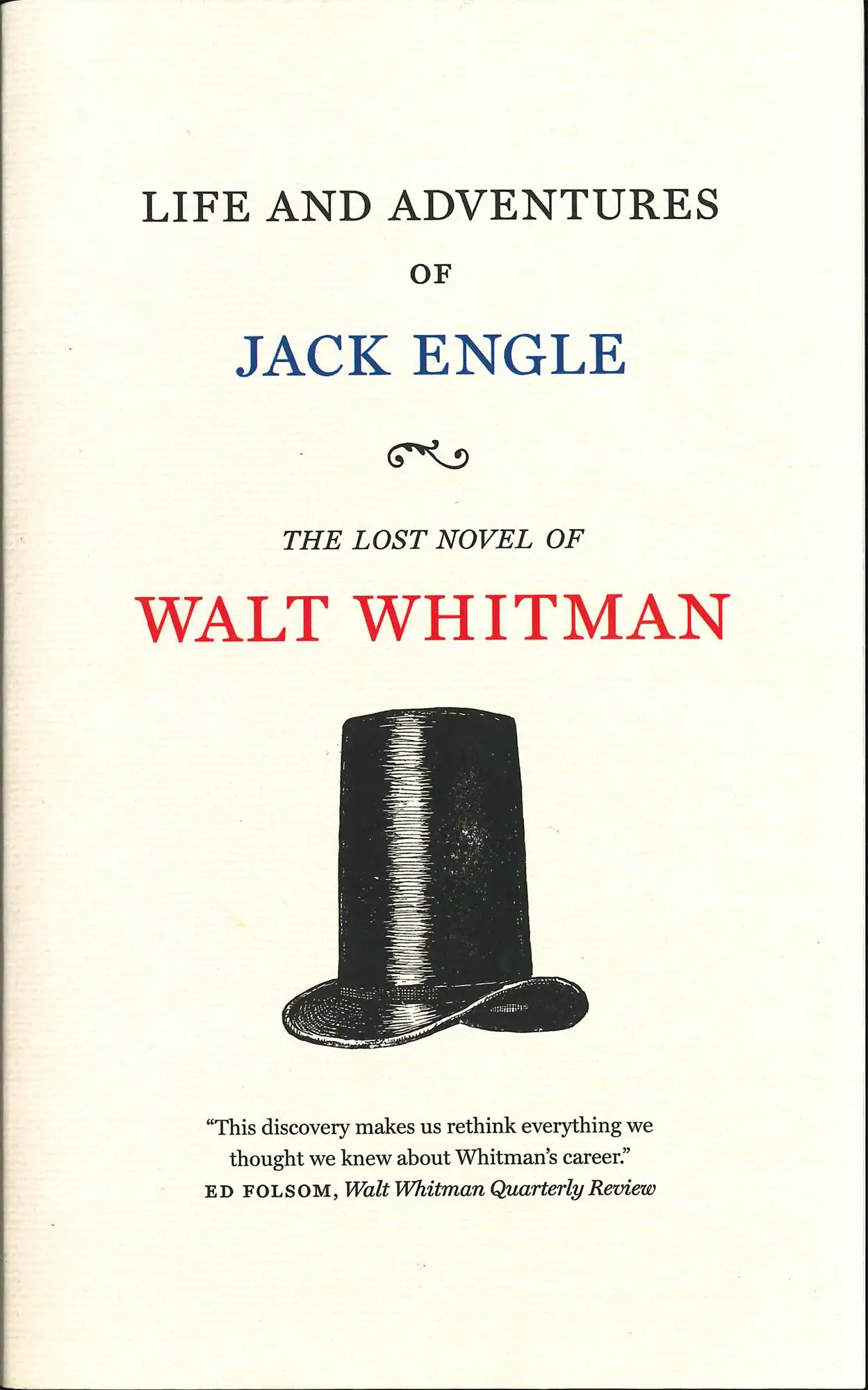Case 11
- Miscellaneous Writings

Walt Whitman. Memories of President Lincoln, and Other Lyrics of the War. Portland, Maine: Thomas B. Mosher, 1906.
Whitman was a huge admirer of President Lincoln, whom he considered to embody high moral and spiritual character and unconquerable steadiness. He first sighted Lincoln in February 1861, as he arrived in New York on his way to his inauguration. Whitman observed the President often in Washington during the Civil War years, but never personally met him.
Whitman grouped his four elegies on the death of Lincoln, and other lyrics of the War, into a volume entitled Memories of President Lincoln. The poem ‘Hush’d Be the Camps To-day’ commemorates the event of Lincoln’s funeral procession through Washington, which Whitman witnessed.
This 1906 edition by Thomas Bird Mosher (1852-1923) was limited to 950 copies.

Walt Whitman. Memories of President Lincoln, and Other Lyrics of the War. Portland, Maine: Thomas B. Mosher, 1906.
Open image in new window

Walt Whitman. As a Strong Bird on Pinions Free, and Other Poems. Washington, D.C., 1872.
The title poem of As a Strong Bird on Pinions Free was written by invitation for graduating students at Dartmouth College in Hanover, New Hampshire in 1872. These poems were subsequently revised and added throughout the 1881 and subsequent editions of Leaves of Grass.
‘The Mystic Trumpeter’ was first published in Kansas Magazine in February 1872 but appears for the first time in book form in this volume, of which 1172 copies were printed.

Walt Whitman. After All, Not to Create Only: Recited by Walt Whitman on Invitation of Managers, American Institute, on Opening Their 40th Annual Exhibition, New York, Noon, September 7, 1871. Boston: Roberts Brothers, 1871.
Whitman’s poem ‘After All, Not to Create Only’ was written by invitation and recited by the poet at the opening of the 40th Annual Exhibition of the American Institute in New York in 1871. The poem was reprinted in twelve daily newspapers in New York and Brooklyn; it also featured in several editorials, some no doubt written by Whitman himself.
It is essentially a poetic restatement of the nationalistic ideas in Democratic Vistas and 2,000 copies were originally printed. In later editions of Leaves of Grass, the poem is known as ‘Song of the Exposition’.

Walt Whitman. After All, Not to Create Only: Recited by Walt Whitman on Invitation of Managers, American Institute, on Opening Their 40th Annual Exhibition, New York, Noon, September 7, 1871. Boston: Roberts Brothers, 1871.
Open image in new window

Walt Whitman. Life and Adventures of Jack Engle: An Auto-Biography. Iowa City: University of Iowa Press, 2017.
In 1852 – while working on Leaves of Grass – Whitman was also writing a novel, Life and Adventures of Jack Engle. Published under a pseudonym and serialised in a newspaper, this tale of orphanhood, avarice and adventure in New York City appeared to little fanfare. While Leaves of Grass became a free-verse classic worldwide, Jack Engle simply disappeared.
The novel was rediscovered in 2016 by University of Houston academic Zachary Turpin, whose research led him to the sole surviving copy at the Library of Congress. The University of Iowa Press reprinted the long-lost work in 2017.

Walt Whitman. Life and Adventures of Jack Engle: An Auto-Biography. Iowa City: University of Iowa Press, 2017.
Open image in new window



